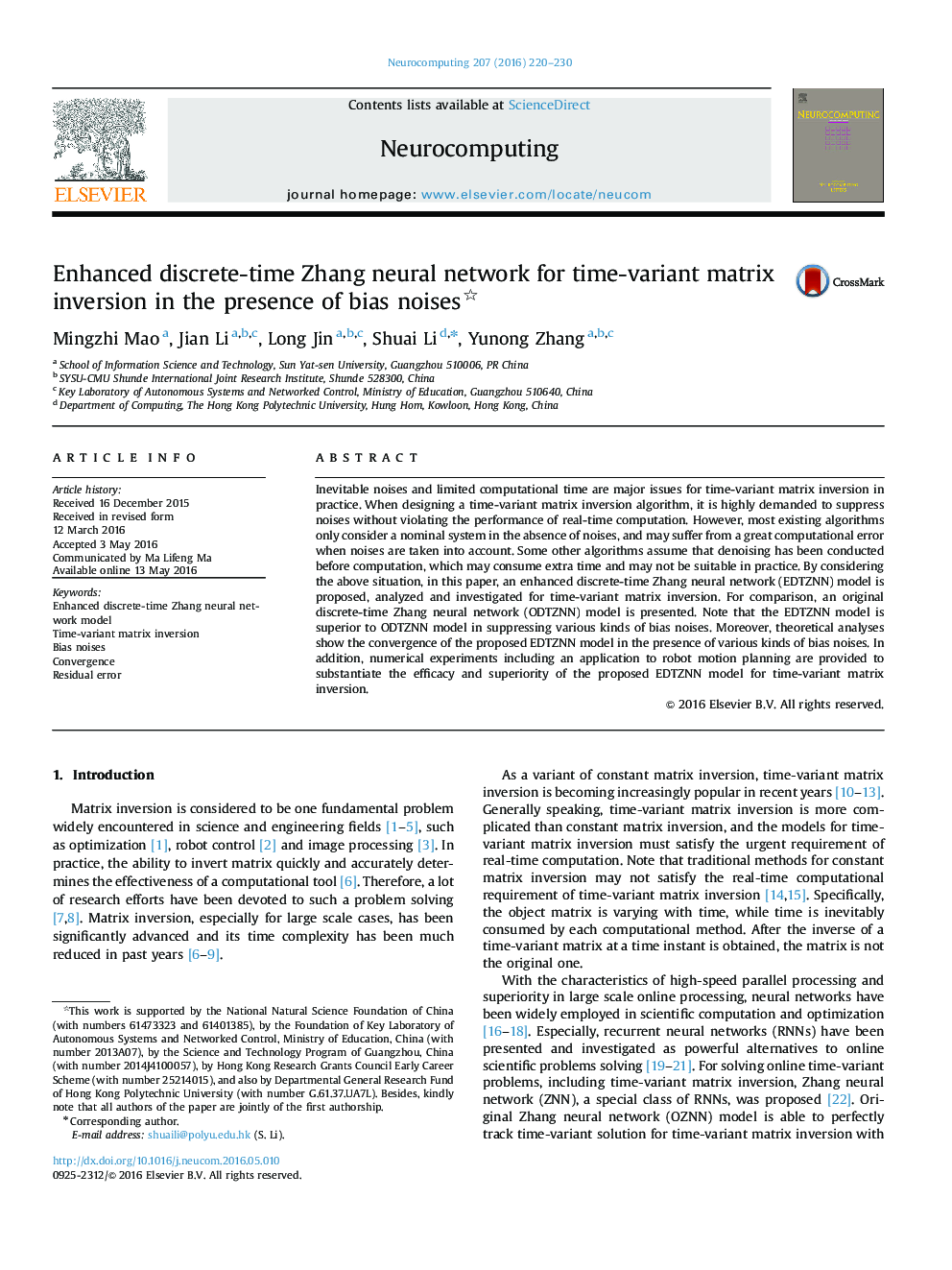| Article ID | Journal | Published Year | Pages | File Type |
|---|---|---|---|---|
| 494453 | Neurocomputing | 2016 | 11 Pages |
Inevitable noises and limited computational time are major issues for time-variant matrix inversion in practice. When designing a time-variant matrix inversion algorithm, it is highly demanded to suppress noises without violating the performance of real-time computation. However, most existing algorithms only consider a nominal system in the absence of noises, and may suffer from a great computational error when noises are taken into account. Some other algorithms assume that denoising has been conducted before computation, which may consume extra time and may not be suitable in practice. By considering the above situation, in this paper, an enhanced discrete-time Zhang neural network (EDTZNN) model is proposed, analyzed and investigated for time-variant matrix inversion. For comparison, an original discrete-time Zhang neural network (ODTZNN) model is presented. Note that the EDTZNN model is superior to ODTZNN model in suppressing various kinds of bias noises. Moreover, theoretical analyses show the convergence of the proposed EDTZNN model in the presence of various kinds of bias noises. In addition, numerical experiments including an application to robot motion planning are provided to substantiate the efficacy and superiority of the proposed EDTZNN model for time-variant matrix inversion.
